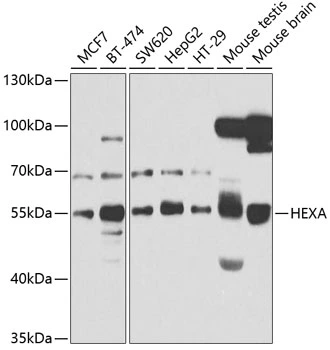
WB analysis of mouse liver tissue lysate (35ug/lane) using GTX81638 HEXA antibody, N-term.
HEXA antibody, N-term
GTX81638
ApplicationsFlow Cytometry, Western Blot, ImmunoHistoChemistry, ImmunoHistoChemistry Paraffin
Product group Antibodies
ReactivityHuman, Mouse
TargetHEXA
Overview
- SupplierGeneTex
- Product NameHEXA antibody, N-term
- Delivery Days Customer9
- Application Supplier NoteWB: 1:1000. IHC-P: 1:50-1:100. FCM: 1:10-1:50. *Optimal dilutions/concentrations should be determined by the researcher.Not tested in other applications.
- ApplicationsFlow Cytometry, Western Blot, ImmunoHistoChemistry, ImmunoHistoChemistry Paraffin
- CertificationResearch Use Only
- ClonalityPolyclonal
- ConjugateUnconjugated
- Gene ID3073
- Target nameHEXA
- Target descriptionhexosaminidase subunit alpha
- Target synonymsTSD, beta-hexosaminidase subunit alpha, N-acetyl-beta-glucosaminidase subunit alpha, beta-N-acetylhexosaminidase subunit alpha, hexosaminidase A (alpha polypeptide), hexosaminidase subunit A
- HostRabbit
- IsotypeIgG
- Protein IDP06865
- Protein NameBeta-hexosaminidase subunit alpha
- Scientific DescriptionThis gene encodes a member of the glycosyl hydrolase 20 family of proteins. The encoded preproprotein is proteolytically processed to generate the alpha subunit of the lysosomal enzyme beta-hexosaminidase. This enzyme, together with the cofactor GM2 activator protein, catalyzes the degradation of the ganglioside GM2, and other molecules containing terminal N-acetyl hexosamines. Mutations in this gene lead to an accumulation of GM2 ganglioside in neurons, the underlying cause of neurodegenerative disorders termed the GM2 gangliosidoses, including Tay-Sachs disease (GM2-gangliosidosis type I). Alternative splicing results in multiple transcript variants, at least one of which encodes a preproprotein that is proteolytically processed. [provided by RefSeq, Jan 2016]
- ReactivityHuman, Mouse
- Storage Instruction-20°C or -80°C,2°C to 8°C
- UNSPSC41116161

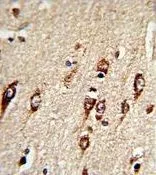

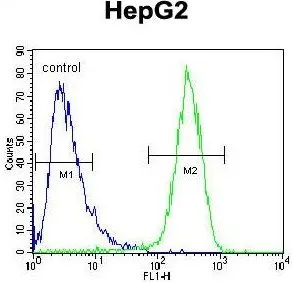

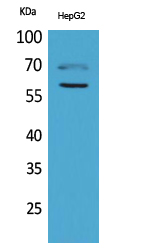


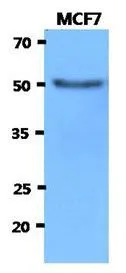
![WB analysis of L1210 (1), and HL7702 (2) cell lysate using GTX60574 HEXA antibody [3F10].](https://www.genetex.com/upload/website/prouct_img/normal/GTX60574/GTX60574_20170912_WB_w_23061123_267.webp)
